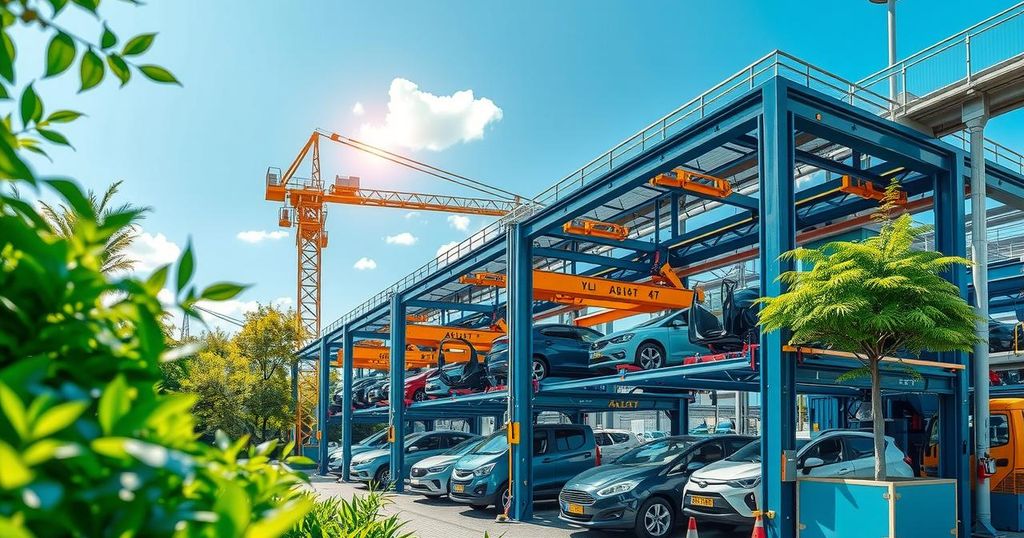AvtoVAZ Targets Nigerian Market with Local Assembly Plans
AvtoVAZ, Russia’s largest automaker, is set to establish a car assembly plant and service center in Nigeria, aiming to provide affordable vehicles in response to a growing market. The initiative is aligned with Nigeria’s efforts to attract foreign investment and promote local manufacturing, particularly focusing on alternative fuel vehicles through a CNG conversion plant.
AvtoVAZ, Russia’s premier automaker, is poised to establish a significant presence in Nigeria by setting up a car assembly plant, a spare parts hub, and a service center. The company aims to provide affordable, locally assembled vehicles to rival the vast importation of used cars and newly manufactured models. Nigeria’s automotive market is among the largest in Africa, fueled by an expanding population and urbanization efforts.
This strategic expansion marks a critical phase in Nigeria’s ambition to attract foreign investment and enhance local manufacturing capabilities. AvtoVAZ, recognized for its Lada brand, is diversifying its operations beyond Russia, with plans to build a spare parts hub and service center in Lagos by the end of 2025. The establishment of this assembly plant aligns with Nigeria’s National Automotive Industry Development Plan, which seeks to reduce reliance on vehicle imports and foster local production.
Moreover, AvtoVAZ is capitalizing on Nigeria’s growing demand for alternative fuel vehicles through plans for a compressed natural gas (CNG) conversion plant. In partnership with a Russian engineering firm, this initiative reflects the company’s strategy to increase its footprint in African markets while navigating geopolitical and trade constraints. AvtoVAZ has set an ambitious goal to export around 20,000 cars in 2023 with a keen focus on the burgeoning African markets.
Adewole Opeyemi, a spokesperson for AvtoVAZ in Nigeria, explained that the CNG plant will allow both factory-fitted gas engines and local conversions. This development is encouraged by Nigeria’s favorable policy which exempts duties on CNG vehicles, providing a substantial incentive for the automaker.
In the context of Africa’s extensive used vehicle market—where Nigeria, Libya, and Kenya are notable contributors—approximately 40% of global used car imports occur on the continent. Currently, used vehicles constitute about 85% of Africa’s total vehicle fleet, and Nigeria is no exception, with over 70% of car sales comprising used imports (locally referred to as Tokunbo).
The anticipated entry of AvtoVAZ aims to challenge this trend by presenting Nigerians with affordable, brand-new cars. The local manufacturing efforts of AvtoVAZ, alongside several emerging domestic manufacturers, promise to reshuffle the current dynamics of Nigeria’s automobile market, providing consumers with increased purchasing options.
In conclusion, AvtoVAZ’s entry into the Nigerian automotive market represents a strategic initiative to foster local vehicle assembly and reduce import dependencies. With plans for a comprehensive assembly plant, spare parts hub, and service center, coupled with a focus on alternative fuel vehicles, AvtoVAZ is well-positioned to leverage Nigeria’s growing automotive demand. This move not only supports Nigeria’s National Automotive Industry Development Plan but also seeks to provide affordable options to consumers amidst a strong market for used vehicles.
Original Source: africa.businessinsider.com




Post Comment